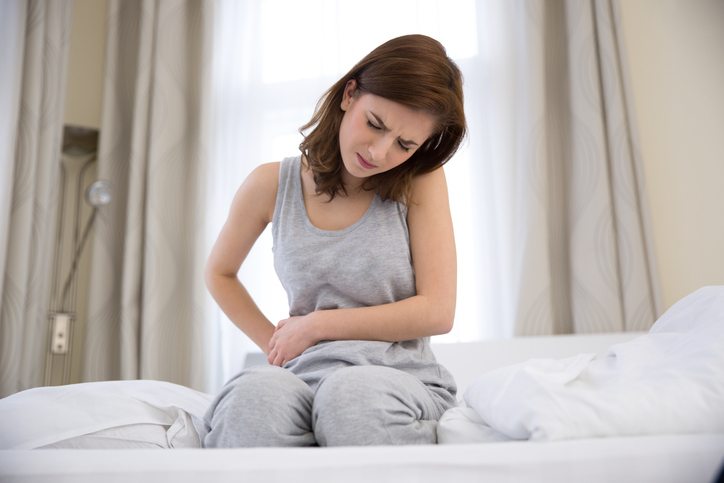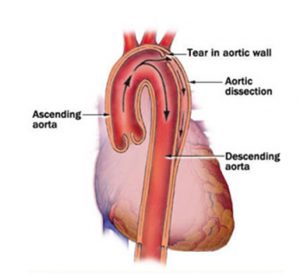What Are Some Best Treatment Options for Heavy Periods

Most women experience heavy bleeding during their periods at a certain point in their life. This problem should not be ignored, especially when it is persistent and disrupts your daily routine. Here are some of the best treatment methods for heavy painful periods.
Self-treatment options for heavy painful periods
If the heavy periods are causing a disruption in your daily life and routine, you may begin by going easy and taking care of yourself during those days. Additionally, the following may help too:
- Women with heavy periods find relaxation techniques to have helped them cope with their condition. Yoga and meditation have proved to be more effective in relaxing the body and mind, as well as, reducing stress.
- You could also indulge in regular exercise, as this helps to regulate the hormones in your body, which are essential for a normal menstrual cycle.
- Doctors advise women to change or spruce up their diet to fight the problem of heavy painful periods. Certain vitamins, fatty acids, and fibers seem to have helped find relief from the condition. Foods with high iron content could prevent anaemia, which is a common side effect of heavy painful periods. Iron-rich foods include leafy vegetables, legumes, wholegrain bread, and meat.
Non-hormonal medication
Non-hormonal treatment for heavy painful periods includes the use of painkillers such as diclofenac and ibuprofen. Both the medicines are Non-Steroidal Anti Inflammatory Drugs or NSAIDs. Doctors often prescribe these tablets to help their patients find immediate relief from menstrual cramps and pain as well as heavy periods. These tablets help to relieve the pain and also lower the loss of blood during periods.
Medicines, such as aspirin, should not be used for the treatment of heavy painful periods. Aspirin contains the drug — acetylsalicylic acid — which generates anti-clotting. Therefore, this would increase the blood flow rather than control it during menstruation.
Hormonal tablets
The secretion of different hormones in your body influences your monthly menstrual cycle. The hormone called estrogen helps perform the important task of maturing the egg every month. During its secretion, the inner lining of the uterus prepares itself to accommodate the egg for a possible pregnancy. This is done with the aid of a hormone called progesterone. Therefore, the regular secretion of these two hormones is important to ensure normal bleeding during periods.
However, these hormones are highly sensitive to any physical, mental, or psychological changes in your body. Sometimes, your body is not able to secrete these hormones properly and the resultant lack or deficiency of these hormones results in irregular periods, heavy bleeding during periods, or heavy painful periods. In this case, doctors suggest hormone tablets manage the lack of hormones in your body.
Progesterone tablets
Doctors recommend progesterone tablets as an effective treatment for heavy painful periods. Progesterone restricts the inner lining of the uterus from growing before menstruation, reducing the bleeding at the time of your periods. Progesterone tablets can be taken as prescribed by the doctor or after the 7th day and before the 21st day of your menstrual cycle for maximum efficiency.
Birth control pills
“The pill” or birth control pills are defined as hormonal contraceptives. These pills either contain the single hormone progestin called the mini-pill, or combination hormones — progestin and estrogen — and are called the birth control pill.
Women who want to manage their heavy periods are usually recommended the mini pill. This lower dose progestin mini pill has to be taken each day as mentioned by the doctor. This pill causes irregular bleeding in some while some others may experience their periods stopping before the condition normalises.
The combination birth control pill is generally taken as a contraceptive. This pill is recommended within the first 21 days of every cycle. Then, bleeding will begin in the seven days between the two cycles.
Surgical options
Sometimes, the doctor may recommend surgery for period pain treatment. However, this is only recommended when all other medications fail to show any results.
Removal of polyps or fibroids
The doctor may recommend surgery if there is more benign tissue growth inside or outside the walls of the uterus, which are persistently causing heavy painful periods. The doctor would remove these tissues either through the abdominal cavity or the vagina. This surgical procedure is called myomectomy or fibroidectomy. In this process, only the lining tissues are removed and not the uterus, so the woman can still become pregnant later.
It is important to seek treatment for heavy painful periods. There is no point prolonging the pain and the suffering as it will only worsen your condition with time. Your menstrual cycle starts to become a problem when it starts to affect your normal daily routine. You should seek immediate consultation from a specialist doctor to find the best methods for period pain treatment.
If you want more information about treatment for heavy painful periods, you must visit the Well Women Clinic today.



